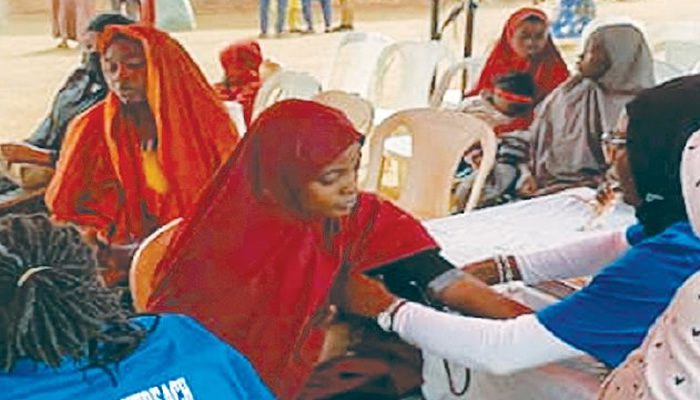As part of efforts to reduce sickness and death in children, a group called Sightsavers Nigeria plans to give vaccines to 3.4 million kids in Sokoto and Kano states.
The leader of Trachoma Sightsavers in the country, Dr Tevil Wanyii-Msheila, announced this during the introduction of the Safety and Antimicrobial Resistance of Mass Administration of Azithromycin (SARMAAN) 2 Project in Sokoto on Saturday.
Wamyil-Mshelia explained that the focus is on children aged one to 59 months, and that the SARMAAN 2 Project builds on the success of the SARMAAN 1 project.
She mentioned that in the SARMAAN 1 Project, over 1.3 million babies in the age group received medicine in 52 local government areas across six states in the country.
”In Sokoto, SARMAAN 2 Project aimed to reach 956,322 children, and will cover all 23 local government areas in the state.
”During the completed SARMAAN 1 project, they targeted 39,818 children, and achieved the vaccination of 41,166,
” We used the Polio vaccine system to be successful in Sokoto state, and Azithromycin is a powerful antibiotic that protects children from a wide range of diseases and strengthens their immune system,” she said.
She pointed out that the death of children under five years old is a big problem globally, especially in countries with low and medium incomes, and Nigeria is one of the main contributors to this issue.
”More effective and affordable actions based on evidence are needed to reduce the rate of children dying under the age of five and to help achieve the Sustainable Development Goals (SDG) by 2030,” she explained.
She mentioned that the project was carried out in partnership with the National Primary Healthcare Development Agency and Sokoto State Primary Healthcare Development Agency.
Other parties involved were the Nigerian Institute of Medical Research, eHealth Africa, Solina Centre for International Development and Research, and Sokoto state Ministry of Health.
The Sokoto State Commissioner for Health, Asabe Balarabe, also stressed the commitment of the state government to work with all relevant parties to eliminate the polio virus and other infectious illnesses that threaten lives, especially those of young children.
Balarabe urged all stakeholders, including traditional leaders, to make a greater effort to achieve complete eradication of polio and ensure success in all vaccination efforts in the state.



